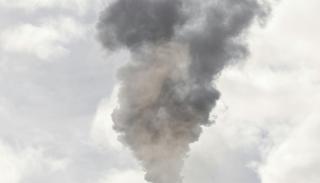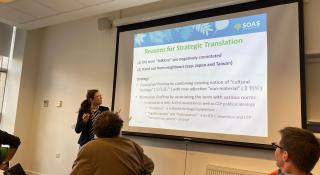
Breadcrumbs navigation
Economisation as boundary work: Integrating climate change into IMF surveillance
In this short video extract, author Jakob Skovgaard discusses the key arguments from his new Review of international studies article - Economisation as boundary work: Integrating climate change into IMF surveillance
Want to know more? You can read the full article at DOI: https://doi.org/10.1017/S026021052400086X
This particular article is open access, however BISA members receive access to all articles in RIS (and our other journal European Journal of International Security) as a benefit of membership. To gain access, log in to your BISA account and scroll down to the 'Membership benefits' section. If you're not yet a member join today.
Abstract
In 2021, the International Monetary Fund (IMF) moved to integrate climate risks into its Article IV surveillance of member states. While the IMF has not traditionally been at the forefront of climate change efforts, this decision involved defining climate change as a risk to macro-economic stability. I argue that the integration of climate change into IMF surveillance can be understood as a case of international organisation (IO) boundary work taking place via the mechanism of economisation: an economic institution addressing a (traditionally non-economic) issue as an economic issue. The study identifies crucial factors shaping this boundary expansion, particularly the agency of IMF staff, as well as preferences within the IMF Executive Board, and institutional ideas. The straightforward integration of physical and transition climate risks is in contrast to the contestation surrounding the integration of mitigation policy. The findings contribute to the literature on IOs and their boundaries, change within the IMF, and the environmental political economy. The analysis reveals the role of IMF staff in this boundary work and, in addition, that institutionalised ideas and the heterogeneous preferences among member states acted as scope conditions limiting how far this economisation could go.
Photo by Patrick Hendry on Unsplash


